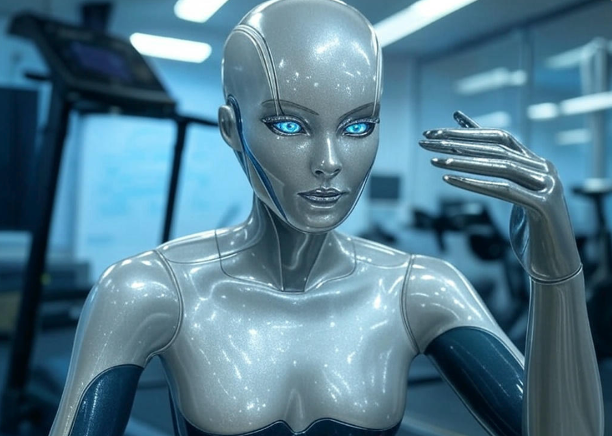Should you consult with AI about your nutrition? A balanced perspective
- baavir33
- Feb 23, 2025
- 2 min read
In an age where technology permeates every aspect of life, artificial intelligence (AI) is transforming how we approach nutrition and diet planning. From personalized meal plans to real-time dietary tracking, AI offers innovative solutions for health-conscious individuals. However, as with any tool, consulting AI for nutrition suggestions comes with both advantages and drawbacks. Below, we explore the pros and cons of integrating AI into your nutritional journey.
#### Pros of AI Nutrition Suggestions
1. **Personalized Diet Plans**
One of the standout benefits of AI nutrition tools is their ability to tailor dietary recommendations to individual needs. By analyzing data like age, weight, health goals, allergies, and even genetic information, AI can craft meal plans that align with specific requirements—something a generic diet book can’t match. For instance, apps powered by AI can suggest low-carb options for someone managing diabetes or high-protein diets for fitness enthusiasts, making nutrition more accessible and precise.
2. **Time Efficiency and Convenience**
AI eliminates the need for lengthy consultations with nutritionists by providing instant suggestions. Whether it’s recommending a quick breakfast based on your pantry inventory or adjusting portion sizes on the fly, AI saves time. Tools like food-scanning apps use image recognition to log meals in seconds, streamlining dietary tracking for busy individuals.
3. **Data-Driven Insights**
AI excels at processing vast amounts of data. By syncing with wearables like fitness trackers, it can monitor calorie intake, nutrient deficiencies, and eating patterns, offering actionable insights. This data-driven approach empowers users to make informed choices, such as increasing magnesium intake if deficiencies are detected, enhancing overall wellness.
4. **Cost-Effectiveness**
Consulting a human nutritionist can be expensive, especially for ongoing support. AI-powered platforms, often available as affordable subscriptions or one-time app purchases, democratize access to expert-level advice, making nutrition guidance more budget-friendly.
#### Cons of AI Nutrition Suggestions
1. **Lack of Human Empathy and Context**
While AI can analyze data, it lacks the emotional intelligence of a human nutritionist. Dietary choices are often influenced by cultural preferences, emotional eating, or lifestyle factors that AI might overlook. For example, suggesting a kale salad to someone who dislikes leafy greens might be technically sound but practically unhelpful.
2. **Over-Reliance on Algorithms**
AI nutrition suggestions depend on the quality of their algorithms and data inputs. Inaccurate user data—like misreported food intake—or outdated nutritional science can lead to flawed recommendations. This over-reliance risks users following misguided advice, potentially harming their health.
3. **Limited Understanding of Complex Conditions**
For individuals with intricate medical needs, such as autoimmune disorders or rare allergies, AI might fall short. Human experts can interpret nuanced symptoms and adapt plans accordingly, while AI may stick to generalized protocols, missing critical subtleties.
4. **Privacy Concerns**
Using AI often involves sharing personal health data, raising valid privacy risks. If not properly secured, this information could be vulnerable to breaches, leaving users hesitant to fully trust these platforms.
#### Striking a Balance
Consulting AI for nutrition suggestions offers undeniable perks—personalization, efficiency, and affordability—making it a powerful tool for health optimization. Yet, its limitations, including a lack of empathy and potential inaccuracies, suggest it’s best used as a complement to, rather than a replacement for, human expertise. For optimal results, consider pairing AI tools with periodic check-ins with a nutritionist to ensure a holistic, well-rounded approach to your diet.





Comments